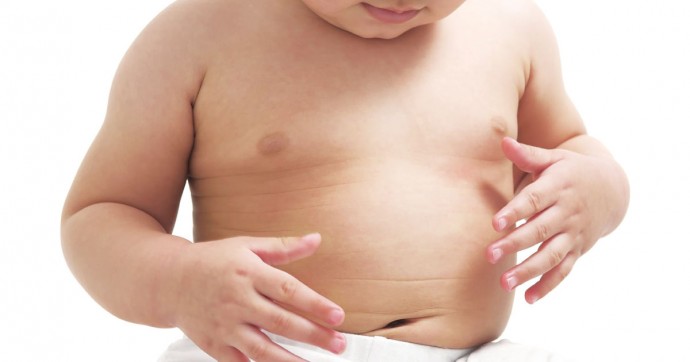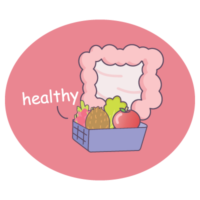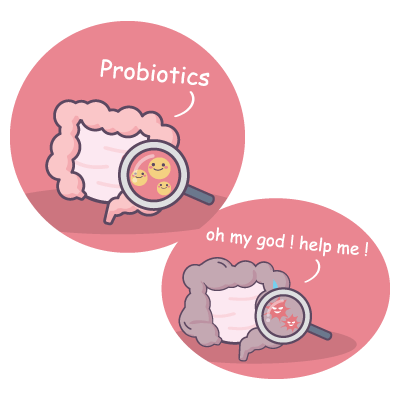A growing child needs proper care and nutrition in order to flourish. When it comes to nutrition, your child’s guts is the key to the optimal digestive process. Thus, gut health can be considered the cornerstone in absorbing nutrients to aid his growth and development.
Unfortunately, gut health tends to take a backseat to other concerns unless there is a problem such as diarrhoea, vomiting, nausea, bloating, tummy discomfort or some other abdominal complaints. These symptoms are also occuring in adults.
Did you know?
Recent statistics show that many Malaysian adults suffer from poor digestive health. The Health Facts 2016 (released by the Ministry of Health (MOH) revealed that diseases of the digestive system were:
- the fourth principal cause of hospitalisation in private hospitals
- the sixth principal cause of death recorded in both MOH and private hospitals the seventh principal cause of hospitalisation in MOH hospitals.
- the seventh principal cause of hospitalisation in MOH hospitals.
Maintaining good gut health
Here’s a basic checklist to follow:
- Eat the right food: Ensure that your child’s diet includes sufficient fruits and vegetables to ensure he gets enough fibre. Keep meal schedules regularly and healthily. Limit his intake of deep-fried foods and sugary food/drinks. Encourage him to drink at least eight glasses of water daily (more on very hot days or if he engages in vigorous physical activity).
- Staying active: He should have at least an hour a day of any type of physical activity. This helps his digestive system running smoothly as it aids in promoting regular bowel movements, and helps him to maintain a healthy body weight.
- Maintaining good hygiene: Teach him about personal hygiene such as washing his hands properly after going to the toilet and before eating. Good hygiene is vital in helping to keep the bad bacteria from entering his digestive tract.
Importance of Good Gut Health
Good gut health helps ensure that your child’s body can properly digest food and absorb nutrients that are essential for his growth. The gut also plays a role in his immunity as it acts as his body’s first line of defence against infections. Furthermore, it can also influence his mood (due to the large concentration of nerve cells called the enteric nervous system (ENS), leading to the gut being called the ‘second brain’).
The ENS controls many functions, such as the digestive process, the release of enzymes, flow of blood during digestion, bowel movements, etc. There is plenty of new evidence that shows how the brain is linked to the gut and it is called gut-brain axis. When you feel anxious or depressed, it can affect not just appetite but may also cause other digestive problems such as diarrhoea, constipation, bloating, or other tummy discomforts. Conversely, having an upset tummy (or any other digestive-related problem) can also trigger an emotional shift and bring your mood down.
Pre- & Probiotics
Maintaining a healthy gut microbiota balance is not a difficult task. This relates to the first tip for maintaining good gut health, i.e. eating right.
There are two main aspects that need to be addressed, namely ensuring that your child eats prebiotic-rich foods (prebiotics are essentially food for probiotics). Prebiotics are predominantly found in dietary fibre (nondigestible carbohydrates), some of which serve as prebiotics. Foods that are prebiotic-rich include banana, garlic, onions, shallots, leeks, and asparagus.
Secondly, he should also be encouraged to eat probiotic rich foods such as fermented milk products (e.g. cheese, yogurt), fermented soy products (e.g. tempeh), kefir, kimchi, or food products with added probiotics (check the nutrition label while grocery shopping).
The gut’s tiny helpers
At the heart of gut health is the large collection of microbial life that lives in your child’s guts called gut microbiota, which consists of both good and bad bacteria. Healthy lifestyle practices help maintain gut microbiota balance, which helps to optimise good gut health.
Remember, the habits of his childhood will last well into his adult life. Studies have shown that good bacteria (also called probiotics) provide many health benefits to both children and adults. In fact, a recent local study performed by researchers at Pusat Perubatan Universiti Kebangsaan Malaysia (PPUKM) revealed notable reduction in intestinal transit time (ITT), or the time it takes the body to convert food into stool and significant improvements in the symptoms of constipation. This study showed that probiotics in the form of Lactobacillus Acidophilus and Lactobacillus casei are effective in improving overall digestive health.
Practise what you preach
Remember, you are your child’s role model, so make sure you walk-the-talk or he will not be inspired to adhere to the aforementioned guidelines. Starting him off on his journey to better gut health together can help bring you closer to each other. While it is never too late to get him started, it is better to get him started as early as possible in order to instil healthy habits that will last a lifetime.









Comments